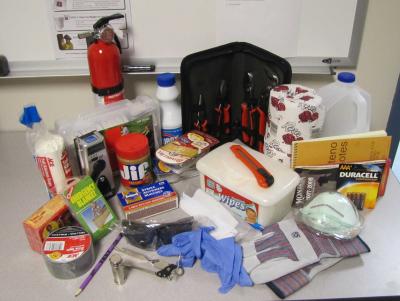Prepare at Home
Disasters are major events that can strike anywhere and at any time. In a disaster, traditional 9-1-1 and First Responder capabilities such as fire, police, medics, and utility personnel will be overwhelmed and unable to immediately assist individuals. Whether due to a local emergency or regional disaster, we are likely to find ourselves, at some time, having to survive on our own, and possibly under dangerous conditions.
Preparing your neighborhood is vital. Neighbors will likely be the first ones to offer you assistance. Neighbors that are prepared are more effective in their response to a disaster and have increased capacity to be self-sufficient for the first 72 hours after a major emergency or disaster.
Remember: In disaster, your most immediate sources of help will be the neighbors living around you.
To prepare for an emergency, you should take time to find out:
- Where and how to turn off water, gas and electricity supplies in your home
- The emergency procedures for your children at school
- The emergency procedures at your workplace
- How your family will stay in contact in the event of an emergency
- If any elderly or vulnerable neighbors might need your help
- How to tune in to your local radio station
- A list of useful phone numbers, such as your doctor’s and close relatives’
If you are at home and an emergency happens, try to gather together:
- Home and car keys
- Toiletries, sanitary supplies and any regularly prescribed medication
- A battery radio, with spare batteries
- A flashlight with spare batteries, candles and matches
- A First Aid kit
- Your mobile phone and charger
- Cash and credit cards
- Spare clothes and blankets
Also, it is always useful to have:
- Bottled water, ready-to-eat food and a can opener, in case you have to remain in your home for several days
In certain very unlikely situations, emergency services may ask you to leave your home.
If this happens, leave as quickly and calmly as possible. And, if you have time:
- Turn off electricity, gas and water supplies, unplug appliances and lock all doors and windows
- See the items listed above for what to take with you
- If you leave by car, take bottled water and blankets, and tune in to local radio for emergency advice and instructions
When you are told that it is safe to return home, open windows to provide fresh air before reconnecting gas, electricity and water supplies.
For further information about preparation for specific emergencies, please click on the links listed below.

